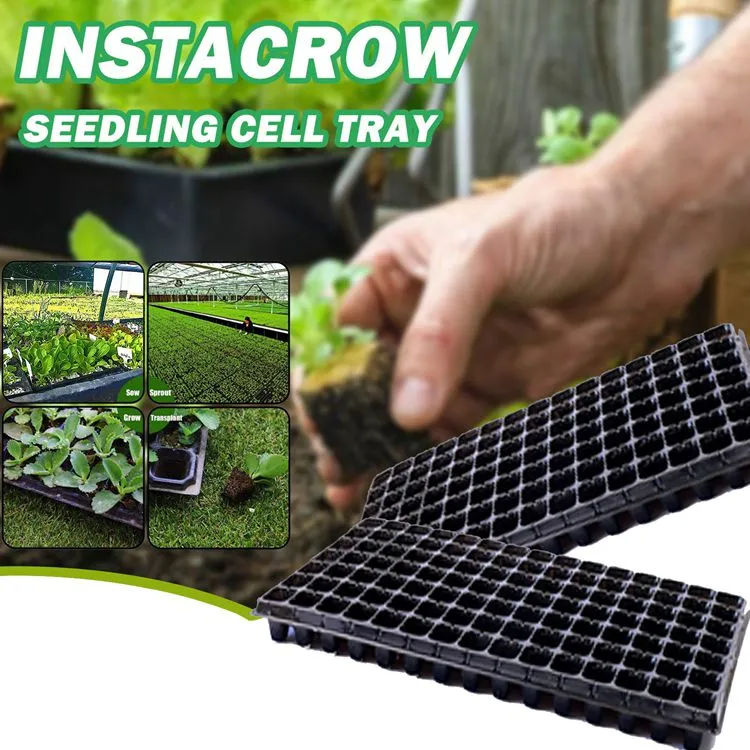How to reuse plastic plant pots & maximise sustainability
Why Reusing Plastic Plant Pots Matters
Reusing plastic plant pots not only helps reduce waste but also maximizes the lifespan of your gardening supplies, making your gardening practices more sustainable. As the world faces increasing environmental challenges, extending the use of plastic products is an effective way to reduce their impact. Here’s how you can reuse plastic plant pots and integrate them into sustainable gardening.
Preparing Pots for Reuse
Before reusing plastic plant pots, it's essential to prepare them properly. Leftover soil and plant matter can harbor bacteria, fungi, or pests that might affect the health of your new plants. Start by cleaning the pots thoroughly with warm, soapy water. For extra sanitation, you can soak the pots in a diluted bleach solution (one part bleach to nine parts water) for a few minutes. Rinse well and let them dry completely before reuse.
Creative Repurposing in the Garden
If you have a surplus of plastic plant pots, consider creative ways to repurpose them in your garden. Small pots can be used as seedling starters, perfect for beginning your garden indoors before the outdoor growing season starts. Larger pots can serve as containers for container gardening, ideal for plants with limited space requirements. You can also use old pots for organizing gardening tools or storing garden supplies like labels, seeds, or fertilizers.

Enhancing Drainage and Plant Health
One of the common issues with plant pots, especially if reused multiple times, is drainage. If you find that the pot’s drainage holes have become blocked or worn, consider adding a layer of gravel or small stones at the bottom to enhance water drainage. This helps prevent waterlogging, which can lead to root rot, keeping your plants healthier for longer.
Reducing Plastic Waste in the Garden
Reusing plastic tray plays a critical role in reducing the overall plastic waste generated in gardening. By extending the life of each pot, you reduce the demand for new plastic products, thereby minimizing your carbon footprint. Encourage fellow gardeners to follow suit, and explore local recycling programs that accept used plastic pots, as many garden centers now offer pot recycling services.
Combining Reused Pots with Sustainable Gardening Practices
Maximizing sustainability in gardening goes beyond simply reusing pots. Combining reused plastic plant pots with other sustainable practices, such as composting, using organic fertilizers, and minimizing water usage through efficient irrigation systems, can significantly reduce your garden’s environmental impact. Mulching, for instance, helps retain moisture in pots and reduces the need for frequent watering.
Innovative Uses Outside the Garden
Plastic plant pots don’t need to stay confined to the garden. You can repurpose them for a range of innovative uses around the house. Use them as organizers for office supplies, children’s craft materials, or small household items. With a bit of creativity, you can turn them into decorative storage solutions, planters for indoor plants, or even small compost bins for kitchen waste.
Partnering with Eco-Friendly Brands
For gardeners looking to maximize sustainability, it’s important to support brands that prioritize eco-friendly practices. Choose plant pot suppliers who use recycled materials, and consider using biodegradable pots alongside reused plastic ones. Many manufacturers are now producing pots made from recycled plastics or materials like coconut coir, which break down over time, offering a sustainable alternative.
Incentivizing Community Reuse Programs
Local communities and gardening clubs can encourage more people to reuse plastic plant pots by setting up pot exchange programs. Gardeners can donate their unused pots, allowing others to take what they need, thereby reducing waste and promoting sustainability. This not only fosters a sense of community but also keeps plastic pots out of landfills.
Conclusion: Small Steps Toward Big Environmental Impact
Reusing plastic planting pots is a small but significant step towards reducing the environmental impact of gardening. By properly maintaining and repurposing your pots, combining them with other sustainable practices, and encouraging community involvement, you can help make your gardening practices more eco-friendly and contribute to the larger effort of reducing plastic waste.

